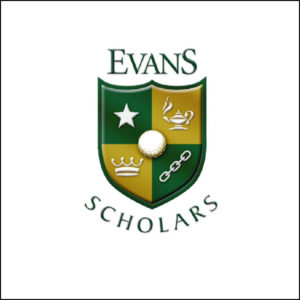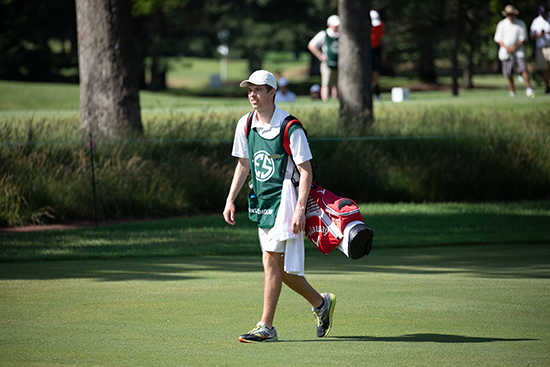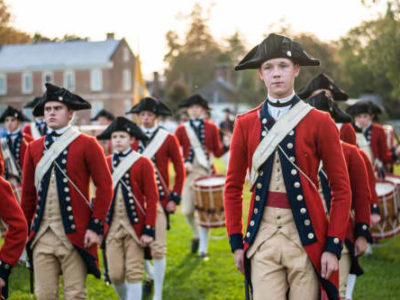By Len Ziehm
As was the case in most every industry in the country, golf faced its share of struggles coping with the pandemic. One segment of the golf world, caddie programs, may have had it tougher than any other.
Golf clubs that cater to youth caddies and promote the Evans Scholarship program were challenged to come up with new rules to maintain caddies on the golf course. Even though golf courses reopened, caddies were deemed “non-essential workers.’’ That meant the possibility of little, or no work for the myriad of high school and college students looking for summer jobs.
Fortunately, the Western Golf Association (WGA) was there to help.
“Until Memorial Day kids were normally in school, so it became somewhat of a waiting game,’’ said Tim Orbon, director of the WGA’s Carry the Game and Caddie Development programs. “We had to wait for experts to tell us when the time was appropriate, when caddying was safe and permissible. We took that time to do our homework.’’
The WGA has always been the caddies’ best friend, since amateur legend Chick Evans declared caddies to be “the lifeblood of the game.’’ When Evans was at his peak, he won both the U.S. Open and U.S. Amateur in 1916 and joined forces with the WGA, to start a college scholarship program for caddies in 1930.
Orbon, an Evans Scholarship recipient, is in his eighth year with the WGA after working 11 years as a club professional. He knew 2020 would be challenging once the pro tours shut down tournament play in March. 
The WGA works with clubs in 27 states and Canada, which encompasses nearly 800 caddie programs.
“All the clubs are a little different,’’ said Orbon, “but a lot wanted to keep their caddies employed.’’
Adherence to social distancing guidelines required adjustments and Orbon developed a plan that was presented to course owners and managers. He proposed caddies be scheduled in four-hour shifts and not allowed to congregate around the caddie area before, or after their loops.
Orbon proposed that caddies be paid for their work in sealed envelopes, or electronically via PayPal, or Venmo, rather than cash. They must wear appropriate protective gear, including a mask and any other safeguards, as required by their clubs, plus they would carry hand sanitizers.
A caddie’s duties changed on the course, as well. Each caddie carried their own rake and divot repair mix. They helped locate golf balls, gave yardages and helped read greens, but could not touch the clubs. Their player would pull clubs from the bag. There would be no hand shaking, or any other physical contact with their golfer.
 Orbon also proposed a hole-specific caddie plan, in which one to four caddies would be assigned per hole. They were stationed on greens and tee boxes and positions beside the fairways to help locate errant golf balls. They were allowed to wash golf balls, but had to toss them to the player, rather than a hand-to-hand exchange.
Orbon also proposed a hole-specific caddie plan, in which one to four caddies would be assigned per hole. They were stationed on greens and tee boxes and positions beside the fairways to help locate errant golf balls. They were allowed to wash golf balls, but had to toss them to the player, rather than a hand-to-hand exchange.
All those suggestions meant a dramatic change from pre-pandemic caddie practices. While each club ultimately set its own caddie protocols, these provided a guideline and undoubtedly kept more caddies working than would have been the case otherwise.
During the early stages of the pandemic the WGA created a caddie manual, a practice exam and a caddie playbook that included short videos to help the clubs and caddies adjust to the changing times.
“This is a challenging time in golf work,’’ said Orbon, “but new caddie programs are starting in Kentucky, the Kansas City area, Iowa and even down in Florida. We want to grow the game.’’
While the caddie programs needed special attention, the WGA did its best to maintain the busy tournament schedule that spotlights and raises funds for its Evans Scholars program. While two national youth tournaments had to be canceled, the WGA still put on its two professional events in 2020 – the Evans Scholars Invitational on the Korn Ferry Tour and the BMW Championship, a FedEx Cup Playoff event on the PGA Tour.










